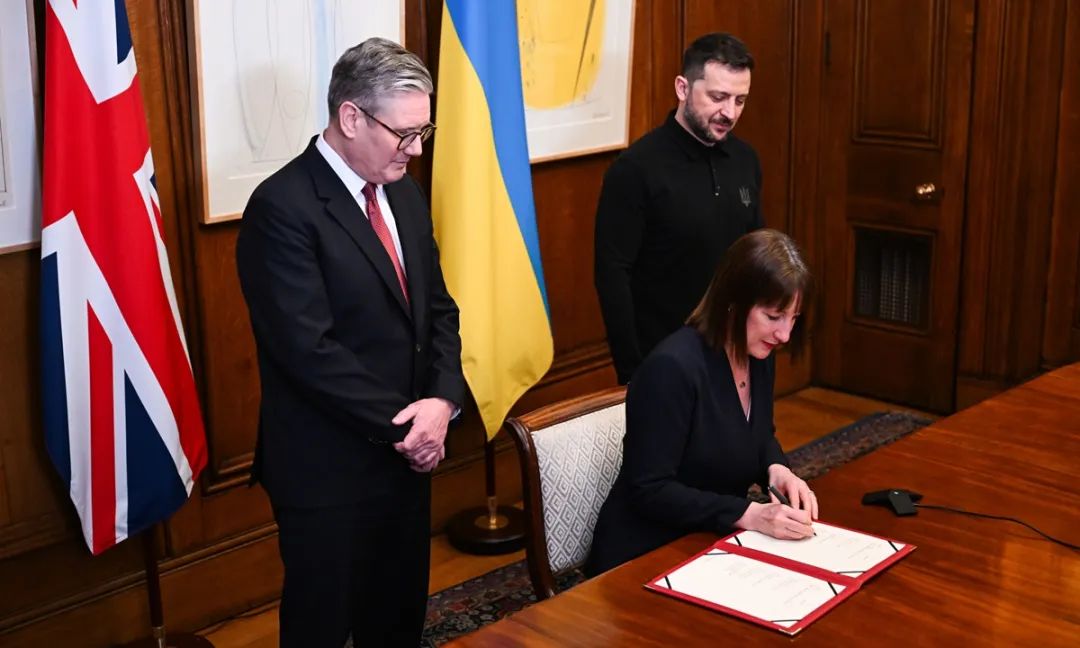
Over the past 14 years with the Conservative Party in power, the UK's policy toward China could be described as erratic. Since the Labour Party came to power last July, it has committed to establishing a long-term and stable relationship with China. During his meeting with President Xi Jinping at the G20 summit last November, British Prime Minister Keir Starmer emphasized the significance of a "strong UK-China relationship." British Chancellor of the Exchequer Rachel Reeves just paid a three-day visit to China to revive bilateral economic and financial talks after a six-year hiatus.
The first step in revitalizing UK-China relations is to restore high-level dialogue mechanism, which is a key aspect of the Labour government's approach to engaging with China. Since taking office, Starmer has put into action the Labour Party's election manifesto commitment to a "cooperate-compete-challenge" policy toward China, placing "cooperation" at the forefront.
In fact, the Starmer administration's policy of engagement with China faces considerable pressure from domestic sources as well as from the US government. On the one hand, the Conservative Party maintains a tough stance toward China, having formed a solid anti-China hawkish faction. Starmer's policy toward China needs to withstand the scrutiny of these opposing forces. On the other hand, as the closest ally of the US, the UK must take into account US' strategic deployments in its engagement with China. When the US prioritizes competition with China, the UK's cooperation with China may appear constrained. Under these domestic and external influences, it is quite challenging for Starmer to develop an independent policy toward China.
However, the Starmer administration is supposed to adopt a pragmatic approach toward China driven by UK's national interests. First, addressing the domestic weak economy requires engagement with China. The current top priority of the Starmer administration is to restore UK's economy and society, particularly the 22 billion pounds of government debt left behind by the Conservative Party. Enhancing economic cooperation with China - especially by attracting more Chinese investment - could inject additional momentum for UK's economic growth.
Second, stabilizing China-UK relations necessitates fostering engagement and understanding with China. If the Starmer administration intends to develop a long-term and stable strategy toward China, it must begin by reinforcing the foundation of bilateral relations through economic and trade ties, thereby paving the way for increased exchanges and cooperation in other areas. Currently, the Starmer administration has chosen not to impose tariffs on electric vehicles imported from China, underscoring UK's open attitude and willingness to engage with China.
Third, for the UK to achieve its goals as a great power, it needs to engage with China. The UK has always viewed itself a global great power, and remains committed to building a "Global Britain." Aside from nurturing close ties with the US and the EU, the UK needs to enhance its engagement with China, as China has emerged as a significant global power with considerable influence. Given the UK's current capabilities, it can't sustain its status as a global power without forging deeper connections with China, the US and the EU. This reality may also be a critical factor driving the current Labour government under Starmer to reshape China-UK relations.
Both China and the UK should embrace an open mind-set toward the world as genuine supporters of free trade. The two major nations have ample opportunities for cooperation on a global scale, as they prioritize national interests and public welfare, address pressing global issues like climate change and biodiversity protection, and both hold permanent seats on the United Nations Security Council. The Starmer administration must continue to work to eliminate third-party influences in pursuit of an independent and autonomous policy toward China. Healthy and stable China-UK relations would not only benefit both countries, but also contribute to global stability and vitality.
The author is a researcher at the UK Studies Center of the Shanghai Institute of Global Governance and Regional Country Studies at Shanghai International Studies University.











